Educational Resource
Selfie Taught
April/30/2018 18:16

The Canadian Broadcasting Corporation just closed submissions for its Shakespeare writing contest entitled the Selfie Student Writing Challenge, a simple idea where students are asked to write a soliloquy or monologue in Shakespearean style of up to 400 words, on some modern subject or pop culture issue. It may be simple, but it's clever too, and perhaps worth putting into your school's curriculum…
Unsex Me Here
April/02/2018 18:26
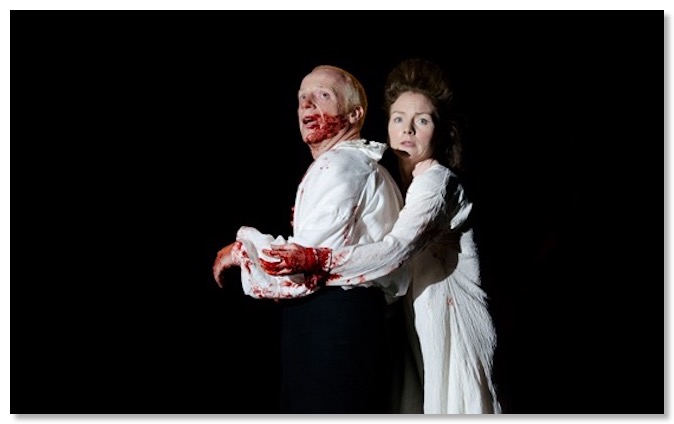
David Crystal, noted linguist and father of the excellent Ben Crystal, lays out in great and fascinating detail the words and phrases that Shakespeare brought to life in Macbeth. That one man could produce (and have adopted into the vernacular) so many great and powerful words and phrases in just one play, is simply astonishing. For teachers helping students grapple with Shakespeare's language, this really is a wonderful article.
Shakespeare's Education
April/02/2018 18:11
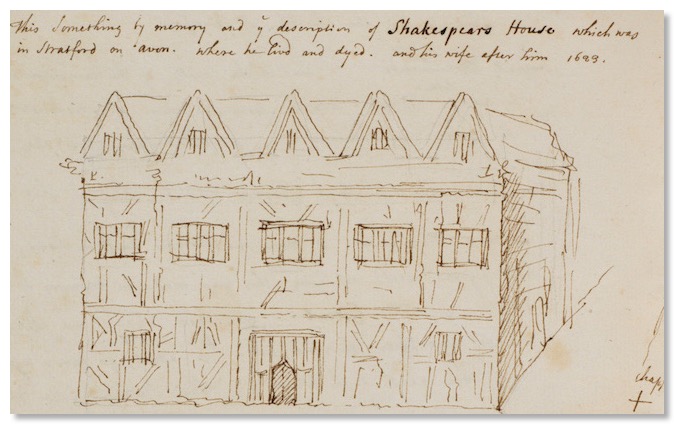
Just as many students today must read Shakespeare at school, so of course at one time, Shakespeare had to attend school, and read the notes and play writes of that era. This brief but detailed article by noted English actor Simon Callow nicely outlines the educational world and childhood Shakespeare likely experienced. And the schooling did not seem either easy, or particularly broad, as he notes in this passages: "They didn’t study history, they didn’t study mathematics, they didn’t study geography, they didn’t study science. They studied grammar, from dawn to dusk, six days a week, all the year round. Grammar – Latin grammar. They translated from Latin into English and from English into Latin. At school, ordinary conversation was in Latin; any boy caught speaking English was flogged. And they mastered the tropes of rhetoric, from antimetabole (where words are repeated in inverse order) to zeugma (where one verb looks after two nouns)."
Is This a Stick Figure I See Before Me?
March/15/2018 09:45
Shakespeare: profound, far reaching, capable of the deepest insights into the human soul, etc. So how could stick figure cartoons possibly capture even the smallest part of his oeuvre? Well, Good Tickle Brain somehow manages to do this, and more. For young students, this may possibly provide a helpful first step. Adults too, for that matter.
Horrible Histories: Meeting Will
February/28/2018 10:26
A lighthearted (and light touch) approach to introducing Shakespeare to students, as Will Shakespeare visits an English school to explain, amongst other things, his creative process (just don't call him cheat!)
Speak the Speech...
February/26/2018 08:09
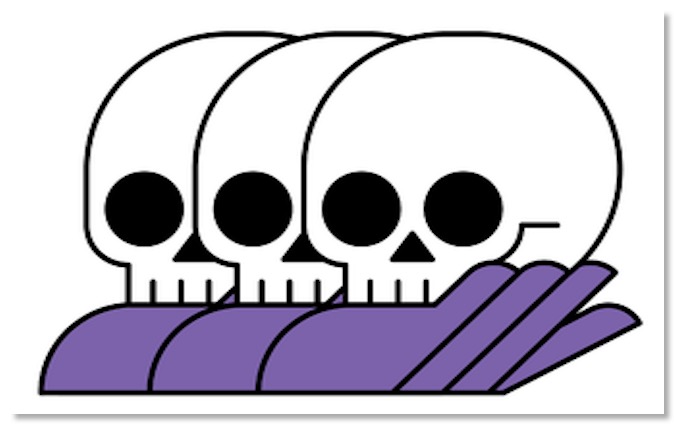 The Royal Shakespeare provides many valuable educational resources. Here, Jacqui O'Hanlon, Director of the RSC's Education outreach group, provides some tips on how to memorize Shakespearean verse. Useful.
The Royal Shakespeare provides many valuable educational resources. Here, Jacqui O'Hanlon, Director of the RSC's Education outreach group, provides some tips on how to memorize Shakespearean verse. Useful.What's in a Production?
February/21/2018 08:21
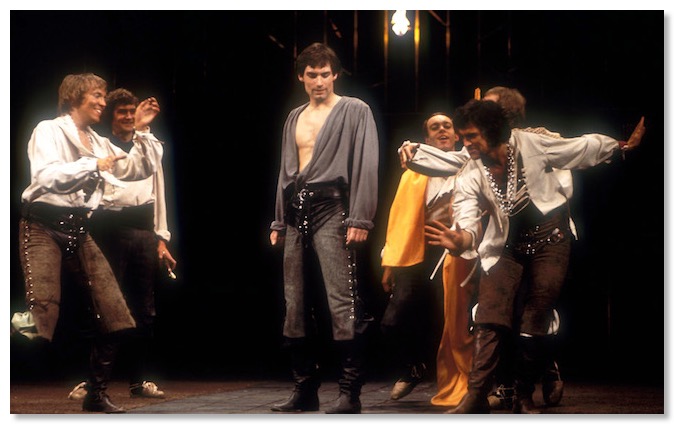
Between 1961 and 2010, The RSC put on sixteen different productions of Romeo and Juliet (including a 1973 production directed by Terry Hands, with Timothy Dalton as Romeo.) (Do they call him Montague…Romeo Montague?) The interactive timeline provides a great teaching resource, allowing teachers to compare and contrast different approaches to the same classic play.
Sounds About Right!
February/09/2018 08:36
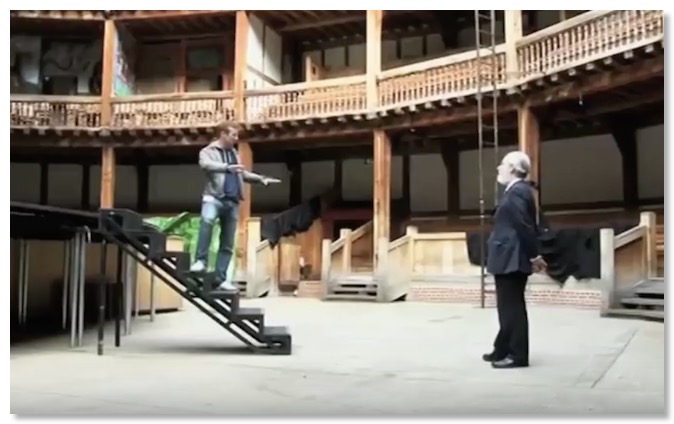
David and Ben Crystal provide a genuine service to Shakespeare lovers (and doubters too, really) by hypothesizing on what Shakespeare's language might have sounded like in its original pronunciation. In addition to being intrinsically interesting, it has an impact on performance, if actors and directors wish to provide an "original" production to their audience. Very worthwhile video clip.
From the Cutting Room Floor
February/07/2018 08:37

A great film resource for Shakespeare films from the British Film Institute. Some free, some rentals, and some available to members only, but the list is comprehensive, and well worth a visit if you're looking for old takes on the evergreen Shakespeare canon.
New Digitized Facsimile of 1623 First Folio Published by Bodmer Lab
February/01/2018 10:15
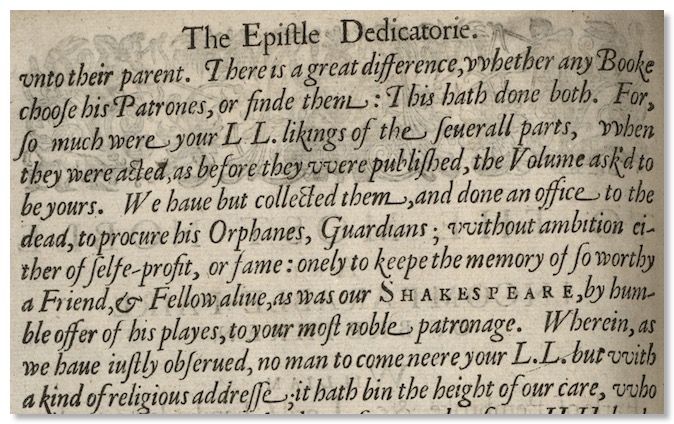
Geneva's Bodmer Lab has made available to the public a full high resolution digital copy of a 1623 First Folio. Pictured above is a part of the dedication of the volume by Heminges and Condell to their patrons, William, Earl of Pembroke, and his brother Philip, Earl of Montgomery. A tremendous asset to scholars, teachers, and students, but note, the text of the web site is in French.
An Excellent Resource, From an Excellent Orgnization
January/25/2018 17:28

Photo by Rob Freeman © RSC
In addition to doing remarkable work in Stratford and beyond, the Royal Shakespeare Company (RSC) also provides a host of excellent resources for teachers and students. Feast! (And if you're wondering what text is being worked on in the photo — it's Henry IV, 2 Act 4, Scene 3 (Thy due from me / Is tears and heavy sorrows of the blood, / Which nature, love, and filial tenderness / Shall, O dear father, pay thee plenteously. / My due from thee is this imperial crown.